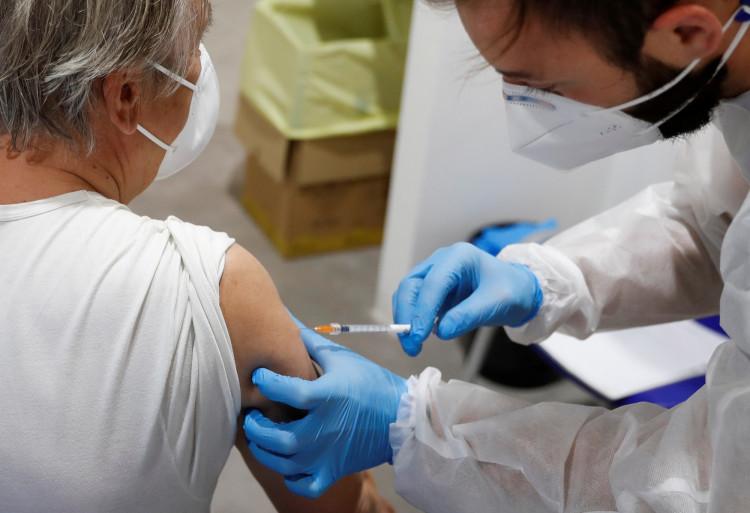Valneva, a French biotech firm, announced on Wednesday that preliminary trials demonstrated that three doses of its inactivated COVID-19 vaccine candidate neutralized the disease's Omicron variant.
"We are extremely pleased with these results," Chief Medical Officer Juan Carlos Jaramillo said in a statement, noting that these added to an earlier Phase III trial that showed improved immune response with two doses of Valneva's VLA2001 vaccine.
The company reported that blood from 30 trial participants revealed that the majority - 26 - produced neutralizing antibodies against the omicron variant, while all 30 produced antibodies against the Delta strain. According to Valneva, neutralization was 2.7-fold lower for delta and 16.7-fold lower for Omicron when compared to the original strain.
In addition, all of the serum samples analyzed had antibodies that neutralized the ancestral virus and the Delta variant, while 87% had antibodies that neutralized the Omicron variant.
The news comes as the company anticipates receiving authorization from regulators in Europe and the U.K. this quarter. The company has received an order for up to 60 million doses to be delivered to the European Union. An earlier contract with the U.K. government worth up to 1.4 billion euros ($1.6 billion) was canceled last year after the British government claimed the company violated its supply contract.
These results show the "ability to address currently circulating variants of concern," Jaramillo said. "We continue to believe that VLA2001 could be an important component of the fight against COVID-19."
To elicit an immune response, the Valneva shot uses a virus that has been inactivated. It's the only COVID vaccination that has advanced to clinical trials in the U.S. and Europe utilizing that tried-and-true method.
It is unique in that it employs a tried and tested way of inactivating the entire coronavirus so that it no longer causes sickness. It then combines with an adjuvant, which is a substance that aids in the successful entry of the drug into human cells.
Flu and polio vaccines are created using a similar method. The concept is that by putting a whole coronavirus into the human body, even if it is inactivated and cannot cause sickness, the immune system will recognize the entire virus as foreign, rather than only the spike proteins.
If the vaccinated person becomes infected with the real coronavirus, this will result in a much larger immune response and an increase in memory cells that can recognize different sections of the virus.
Valneva anticipates receiving probable licenses for its vaccine during the first three months of 2022, and is sharing data with the European Medicines Agency (EMA), as well as regulators in the U.K. and Bahrain.
The company expects to ship doses of its vaccine in April should the shot be approved in Europe.






